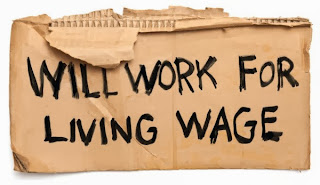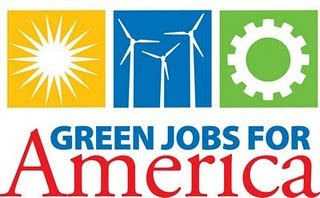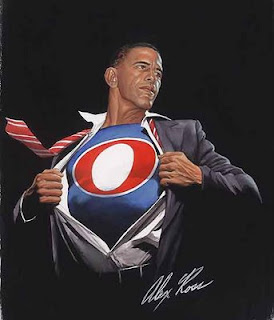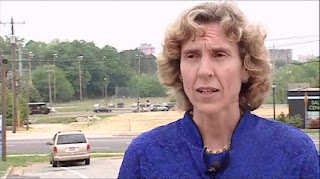


Is Emissions Trading the Carbon Solution?
Emissions trading is expected to create a US$ 1 trillion carbon market with links to all sectors of the Global Economy.
What is the appetite for a market-based solution to climate change?
Biggest Polluters Will Attend Copenhagen
On the eve of the international climate summit in Copenhagen, world leaders are hopeful for a credible climate deal. A main focus has been on the divide between developed and developing nations. Entering into the summit, developed countries will likely agree to cut their emissions by 2020 and finance developing countries so that those nations can reach their goals. Those goals include curbing the growth of emissions and agreeing to short-term financing.
The U.S., India, and China, the world's largest polluters, have pledged to cut down on emissions, behind countries such as Brazil, Indonesia, Mexico, Japan, and the European Union. A climate economist said the commitments come "very close" to what is needed to avoid catastrophic climate change. Obama's last-minute decision to attend the final stages of the summit makes a positive outcome more likely, as all major world leaders will be present.
Hopes increase for a credible climate deal
When Pres. Barack Obama, decided late last week to attend the final stages of the fortnight-long United Nations climate change conference in Copenhagen, which begins on Monday, the gasp of relief from delegates heading to the Danish capital was almost audible.
Mr Obama’s presence means a credible deal is much more likely because the leaders of almost all the world’s big economies and emitters are now planning to attend the summit on the final day, when any agreement will be reached.
Wen Jiabao of China, Angela Merkel of Germany, Yukio Hatoyama of Japan, Manmohan Singh of India, Gordon Brown of Britain and Nicolas Sarkozy of France are among the more than 100 leaders who have confirmed their attendance.
“World leaders will not want to leave empty-handed,” one senior official said of the conference, which is attempting to forge a global framework on greenhouse gas emissions to replace the Kyoto protocol, the main provisions of which expire in 2012.
Also raising delegates’ hopes is the flurry of statements from countries in the past few weeks because the broad contours of the probable deal, the negotiations for which began two years ago, are now clear.
Developed countries will agree to cut their emissions substantially between now and 2020, while developing countries will curb the future growth of their emissions. Developed nations will agree some form of financial assistance for poor countries and there may be agreement on the governance structures that will be created to oversee this.
As with any such global negotiations, much has happened at the last moment. “We have seen a lot of movement in the last two weeks,” Yvo de Boer, the UN’s top climate change official, told the Financial Times. “We seem to be almost there [on the key issues].”
Almost every big emitter had made a commitment on emissions, with the US, India and China being the last to make announcements. They followed pledges from other big developing economies, such as Brazil, Indonesia and Mexico, and longstanding commitments from the European Union, Japan and a few others.
According to analysis published on Sunday by Lord Stern of Brentford, a climate economist, these commitments take the world “very close” to the cuts scientists say are needed to avoid the worst effects of climate change.
However, he added that politicians would need to work hard to ensure the commitments were maximised. “With goodwill and the right collaborative spirit, it will be possible to do a deal.”
Another of the issues that has delayed progress on the talks has been the thorny question of financial assistance from rich to developing countries. The UN has said this should reach $100bn (€67bn, £61bn) a year by 2020. Mr de Boer’s recent decision to seek an aggregate commitment, which absolves rich countries of making individual long-term commitments, has greatly simplified this part of the negotiations.
But he said developed countries still needed to agree short-term financing of at least $10bn a year over the next three years. There has been progress towards that, with several countries indicating a willingness to contribute. The US will probably be able to supply $1.4bn already in its budget for next year and the UK has promised £800m ($1.3bn, €887m) over the period.
If the figure can be reached, with a promise on an aggregate amount of assistance to be available by 2020 guaranteed in strong language, that could be enough to satisfy developing countries.
However, these are UN negotiations and they can easily be derailed by a country refusing to back the consensus. Mr de Boer said the involvement was what made the process “complex and satisfying”.
The perils were illustrated by the walkout by African nations at the last round of negotiations in November, in protest at the lack of finance offered. This time, small island states might propose lowering the temperature target from the widely agreed 2ºC to 1.5ºC, requiring far stiffer emissions cuts.
Achim Steiner, head of the UN Environment Programme, warned: “Do not underestimate the power of small nations or least developed countries to significantly affect the outcome in Copenhagen.”
Mr de Boer said a deal was “certainly possible”. But, in a measure of the tension that will endure to the final minutes, added: “If Copenhagen achieves all [it is supposed to], I will do a dance round the Christmas tree.” He may yet be picking pine needles out of his socks next Friday night.
View Larger Map
Sources: The Daily Beast, FT.com (Financial Times), World Economic Forum, CBS, Youtube, Google Maps




































































.jpg)























No comments:
Post a Comment